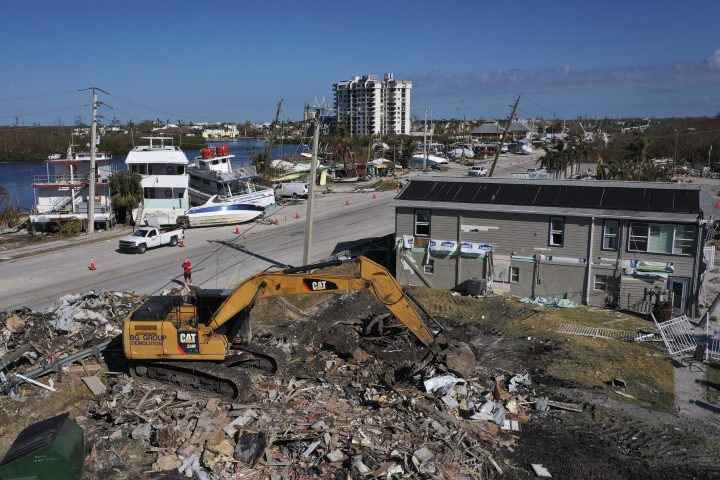
For the first time, homeless victims of a hurricane will be eligible for federal aid
For the first time, homeless victims of a hurricane will be eligible for federal aid

Normally, when there’s a major hurricane, people who were homeless before the storm aren’t eligible for much aid after.
“Most of the federal programs … tend to benefit homeowners, renters, business owners,” said Isabella Alcañiz, who researches climate change and inequality at the University of Maryland. “So the unhoused population, which is at incredibly high risk of feeling the brunt of natural disasters, are typically not part of the millions and even billions of dollars that we see going into helping people get back on their feet.”
As recovery efforts from Hurricane Ian begin to take shape, that’s about to change. For the first time after a major disaster, there will be federal funding available to help people who were already homeless before the hurricane.
The Department of Housing and Urban Development has announced nearly $7 million to help people who are homeless or at risk of homelessness in communities that were affected by Hurricane Ian.
“They’ll be able to get rental assistance and supportive services to go along with that rental assistance,” said Ann Oliva, CEO of the National Alliance to End Homelessness.
“And that rental assistance could be used for up to two years … it’s a big deal, it’s a game changer for how communities can respond to the needs of people experiencing homelessness and housing instability after a natural disaster,” she said.
Often, after hurricanes and other disasters like wildfires, “what we see is a worsening of the pre-existing housing crisis in a lot of these areas,” said Noah Patton with the National Low Income Housing Coalition. “Because not only are you knocking rental housing offline, you’re also knocking offline owner-occupied homes.”
Which makes it harder than ever for people with very low incomes — or no income — to find places to live.
Support for people in precarious situations is particularly critical after a storm as catastrophic as Ian, said Gladys Cook at the nonprofit Florida Housing Coalition.
“Systems are stressed … people who were living out of doors can’t … people who were living in their vehicles may have lost a vehicle. So it just adds a whole lot more stress to the situation,” she said.
The money that’s been announced so far won’t be nearly enough to help everyone, Cook added, but it will be a good start.
There’s a lot happening in the world. Through it all, Marketplace is here for you.
You rely on Marketplace to break down the world’s events and tell you how it affects you in a fact-based, approachable way. We rely on your financial support to keep making that possible.
Your donation today powers the independent journalism that you rely on. For just $5/month, you can help sustain Marketplace so we can keep reporting on the things that matter to you.











